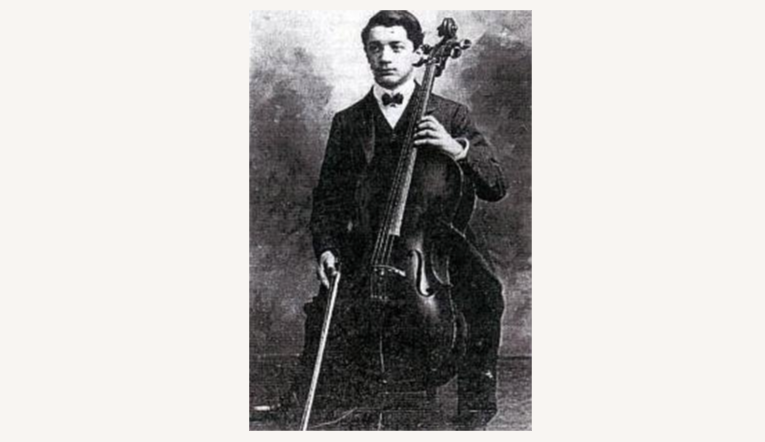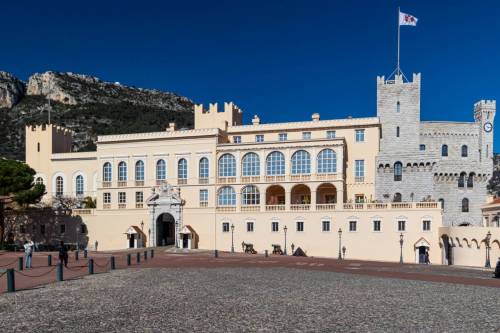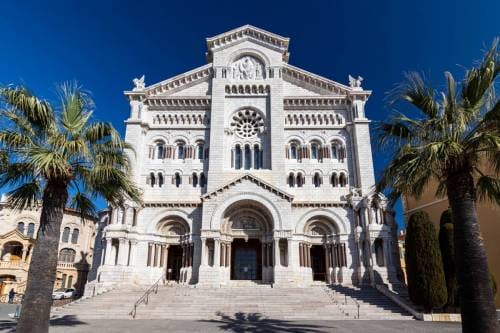One of the most successful ‘box-office’ movies in the history of cinema, James Cameron’s ‘Titanic’ is celebrating its 25th anniversary. On this occasion, the film is once again appearing on the screens all around the world, and the audience will again empathize with young lovers Rose and Jack. However, at the 111th anniversary of the sinking of the Titanic (April 1912), it is the memory of the real heroes of the tragedy that we honour, none more than the musicians of the orchestra, who were playing — until the very last minute, even seconds! — on the deck of the sinking vessel. The youngest member of the Titanic orchestra was 20-year-old Roger Bricoux, originally from Monaco…
It’s unimaginable, being on the grandest safest ship in the world, thought to be unsinkable, a young Monegasque exhilarated was playing his heart out as a cellist.
The Orchestra in those days was a star attraction. It’s not too much of a stretch to think of it as if the Beatles or the Rolling Stones were on the Titanic. Six talented musicians, not the least of which was Monegasque Roger Bricoux in a prime moment of his flourishing career.
What thoughts must have been going through his mind when the jolt of the iceberg striking the hull reverberated through the ship as he was playing his cello to the adulating passengers surrounding him … all of them vying to have the orchestra play their favourite tune. Surely at the moment of that completely unexpected jolt there was no connection to the hellish spectacle that was soon to unfold.
Enveloped in music, in blissful security the orchestral show goes on unperturbed.
As a questioning unrest starts to sprinkle in the audience around the Orchestra, the musicians become the stabilizing influence.
Stabilizing was sadly not what was happening to the elegant cruise liner unfortunately. For the passengers though it was not obvious in that last enjoyable interlude.

As if at the focal point in a ski resort where the seeds of an avalanche are hidden in a clap of thunder the Orchestra now takes on a calming role in this immense floating hotel. Preventing panic, the musicians went back to playing in the first-class lounge.
The lull is short-lived. Within the next one and two hours panic begins to spread. Passengers rush to the upper deck. The musicians then begin to play in the main staircase.
The passengers jostle trying to find places in the lifeboats. The musicians move again. They settle down on the upper deck, to starboard, towards the second funnel. The Orchestra stands fast in its key role. Keep order, prevent panic and play, play, play.
At what point did they realize that everyone’s lives were at peril … that not only was there to be a mass evacuation … that most would perish in the icy void of the black sea-water. There were not enough lifeboats.
The upper deck had taken on an incline like a slide… the Orchestra held fast with difficulty, still contributing to stemming an uncontrollable mass panic allowing those too few lifeboats to load the third of the passengers and crew who would survive.
Of its total 2,240 passengers and crew, only 706 people survived the Titanic. Of the brave Orchestra musicians, there would be no such divine luck, not for Roger Bricoux, not for any of them. Survivors attested that these kind dedicated and dutiful musicians were among the bravest of the brave.
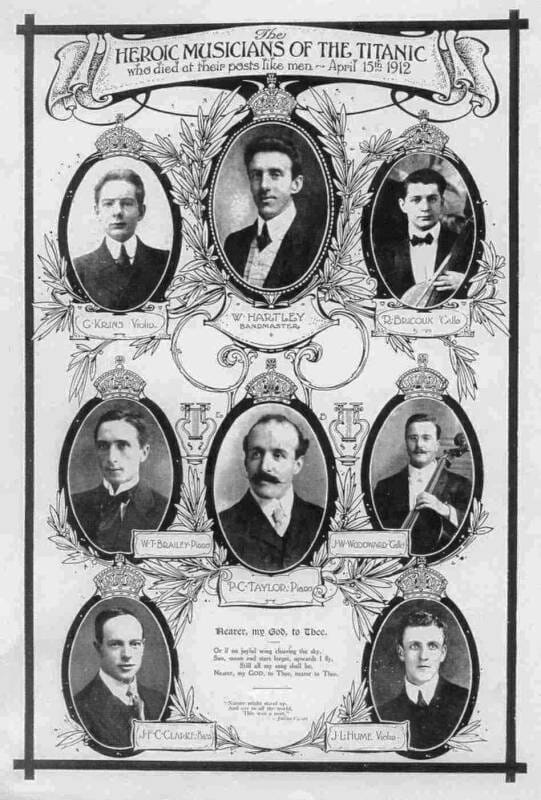
Playing their hearts out, perched at an impossible incline on the deck as if on a ski slope, they engaged in their last act of defiant bravery. At 2:15 am, not three hours after the Titanic hit the iceberg, it is clearly now sinking… chandeliers crashing and shattering below while a huge wave washes the Orchestra away into the black void of the awaiting icy sea.
All that can be said is that our Monegasque hero died doing what he loved best, his nimble fingers caressing the bow of his cello as it flowed across the strings…
All About Roger Bricoux
It was not a coincidence that a Monegasque was playing in the Titanic Orchestra. Under Prince Albert I the cultural life in Monaco was thriving with its own symphony Orchestra where Roger Bricoux’s father Leon Bricoux played the horn.
While living in Monaco, Leon and Marie-Rose Bricoux decided to start a family. Roger was their third son and Marie-Rose had gone to her mother’s in Cosne-sur-Loire (Burgundy) to give birth to him on 1st June 1891.
Roger then spent his childhood in the Principality with his parents, while attending Saint-Charles College. Having taken to music and profited from his exposure to his father’s talent together with musicians from the Monaco orchestra, Roger pursued his studies in Italy in Bologna where he won first prize and then at the Paris conservatory and added a first prize from the Monaco conservatory too.
Entering the music profession, he began as a stand-in in the orchestra of Monaco and also played in venues across the Côte d’Azur. Both he and the pianist in the Titanic Orchestra Theodore Brailey had served on the Cunard steamer Carpathia.
The White Star Line, proud owners of the Titanic, knew where to find the best musicians and one day, Roger received a life-changing telegram with an offer to hire him as a cellist … a cellist on the largest ocean liner in the world, the Titanic leaving Southhampton England on April 10th, 1912.
The band leader Wallace Hartley and the other musicians were English. Roger a 20-year-old Monegasque would be the youngest in the orchestra.
In a strange twist of fate the Carpathia on which Roger had previously played would undertake the heroic rescue of the only survivors of the Titanic disaster… not without a significant degree of peril, however, as Carpathia endured its own hazards, dodging icebergs along the entire 58-mile route to save the survivors. Roger sadly would not be among them and his body was never recovered. The Carpathia would itself eventually be sunk by torpedoes in World War II.
The liner sinking made the headlines all around the globe. Monaco and the world were stunned. The Principality had one of its own among the heroic musicians. On May 1st Leon Bricoux, his father, received a telegram from the White Star Company informing him that his son’s body had disappeared … the assumption had to be he had drowned.
The Principality was swift to act. On May 2nd, in the Church of Sainte-Dévote a tribute to Roger Bricoux was immediately organized.
The Sainte-Dévote church according to historic records was absolutely crowded … all the musicians of the Monaco orchestra were among those honouring Roger. The Principality paid homage to the Monegasque cellist who played his heart out, helping the passengers to the very last moment … a hero whose kind soul will remain in our memories forever.
The calamity of the “unsinkable” Titanic was not the first tragedy for Roger’s parents Leon Bricoux and his wife Marie-Rose. They had had two other boys who died at a young age.
Their torment with losing Roger was not to end there either, as his death certificate was not officially registered after the disaster. In 1913 during World War I, in a fateful administrative mistake Roger Bricoux had been considered a deserter by the French army whose records mistakenly assumed he was still alive. It was not until 2000, thanks to the work of the Association Française du Titanic that he was officially registered as having died. On 2 November 2000, the AFT helped have a memorial plaque unveiled in memory of the Monegasque hero Roger Bricoux in Cosne-sur-Loire, the city where he was born on 1 June 1891.
The Sinking of the Titanic: What were the Chances of Dying or Surviving
Did you know that if you were a woman in first-class on the Titanic you had over a 95 % chance of surviving? And that if you were a man in second class only around 20 %. You like many of us thought the star of the film Rose lived and co-star Jack died. Sort of … because they were actually fictional characters.
Molly Brown, played by Kathy Bates, on the other hand (the “unsinkable Molly Brown”) was a real-life rich socialite and even raised money for her fellow survivors using her notoriety and resources after the catastrophe.
The most recognizable name in the fatalities and richest was probably John Jacob Astor IV, a German-American millionaire who had made his fortune in real estate and was the great grandson of John Jacob Astor, founder of the Waldorf Astoria Hotel in New York. Following the guidelines of women and children first, Astor IV’s wife made it to a lifeboat and survived, but Astor didn’t, and died aged 47.
Another famous and rich passenger who died was Benjamin Guggenheim. The story goes that he changed into his formal evening wear to face death.
And Isidor Straus who was the German-born co-owner of Macy’s department store in New York, died alongside his wife Ida. They were last seen sitting in deck chairs on the deck, having refused to be separated in the lifeboats: they wanted to be together, no matter what.
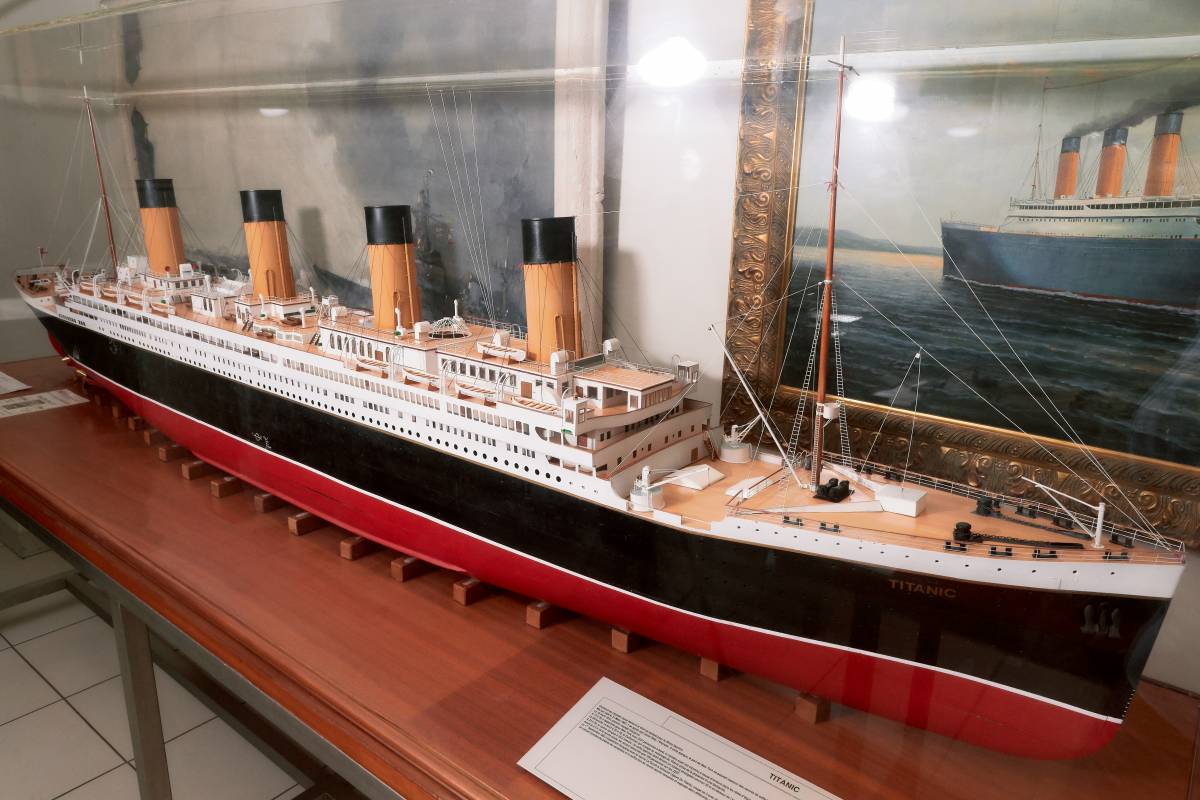
The Final Hymn
Monegasque cellist Roger Bricoux and the brave musicians of the ship met their fate trying to calm the passengers so as many as possible could be loaded onto the lifeboats… and the others could pray and meet their fate with dignity.
But even the surviving passengers are conflicted over what was the actual final orchestral piece that the heroic musicians were playing in those dying seconds.
Historians often list it as “Nearer, my God, to Thee”, because that is the last thing that many Orchestra musicians play at the grave of a fellow musician.
But a surviving wireless operator was convinced the band on deck was playing “Autumn.”
The confusion is understandable as both hymns have similar words though with different melodies.
Both hymns have an apt line “Hold Me Up in Mighty Waters.”



